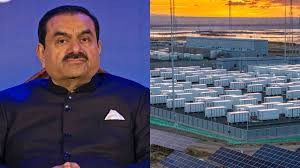India Ramps Up Search for Rare Earth Alternatives as China Tightens Export Grip, Says Ashwini Vaishnaw

IIE DIGITAL DESK : Bold response to China’s recent clampdown on rare earth metal exports, Union Minister for Electronics and IT Ashwini Vaishnaw has confirmed that Indian electronics companies are actively exploring alternative solutions to ensure the continuity of domestic manufacturing. As geopolitical tensions reshape global supply chains, India is intensifying its efforts to reduce reliance on Chinese rare earth metals—critical components used in semiconductors, smartphones, electric vehicles, defense equipment, and green energy technologies.
China, which controls over 85% of the global rare earth supply, recently imposed strict export restrictions on key materials like gallium and germanium, both indispensable in the electronics and defense sectors. This strategic blockade has caused ripples across international markets and sent nations like India scrambling for contingency measures. Vaishnaw, addressing the media during a press briefing, emphasized that the Indian government is working closely with the electronics industry to identify new sources and develop in-house capabilities to meet the country's growing demand.
India, despite having significant untapped reserves of rare earth elements, has long depended on China for refined products. However, the current situation has pushed the government to speed up policies focused on self-reliance, in line with the larger “Atmanirbhar Bharat” mission. India is now looking towards friendly nations such as Australia, the United States, and Vietnam to diversify its rare earth supply chain while also exploring domestic reserves that remain underutilized due to the high cost of extraction and environmental concerns.
Vaishnaw added that the Centre is also planning to scale up the electronics manufacturing ecosystem by encouraging domestic production of key components, supported by financial incentives, research investments, and simplified regulations. The Production Linked Incentive (PLI) scheme has already attracted global players to set up factories in India, but rare earth dependency remains a bottleneck in reaching full independence in high-tech manufacturing.
Several public and private sector collaborations are in progress to mine and refine rare earths locally. Institutions like the Indian Rare Earths Limited (IREL) and private startups are being encouraged to invest in extraction technologies and sustainable refining processes. Moreover, the government is preparing a policy framework to streamline licensing and regulatory clearances for rare earth exploration and processing.
The electronics sector, one of India’s fastest-growing industries, heavily depends on these critical materials to produce mobile phones, chips, circuit boards, batteries, and displays. A disruption in this supply chain could potentially hinder India’s ambition to become a global electronics hub. Therefore, addressing the rare earth challenge is not just an economic imperative, but a strategic necessity.
With the stakes higher than ever, India is moving decisively to shield its electronics industry from global disruptions. The response to China’s export blockade is poised to mark a turning point for India's tech sector, as it redefines its global position with greater autonomy and resilience.
You might also like!
















